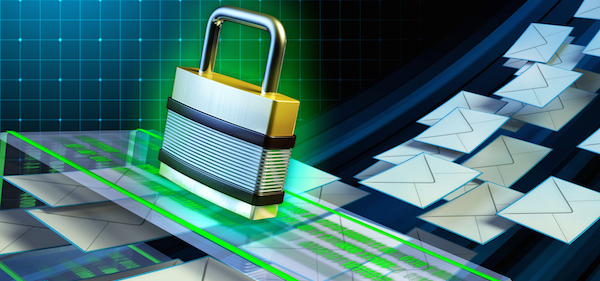Email is one of the most popular ways that people stay connected. It’s on everything – phones, computers, smart devices, gaming consoles and even some cars. But email was never built with security or privacy in mind.
Your email is potentially vulnerable on the network being used to send it, on the server from which you’ve sent it, on the recipient’s device, or from your own device – be it computer, phone or smart TV.
Whilst most email apps allow for encryption, many do not, and it’s the ones that aren’t that provide perfect fodder for hackers using malware to ‘phish’ for your information.
However, if you follow our easy guidelines for using email you’ll be able to better protect yourself from the malicious intentions of these nasty, thieving hackers.
Treat email like a postcard
You remember postcards, right? Well, technically, email is very similar. It’s an open message sent through cyberspace that can be read by anyone who cares to look for it. So it’s best not to send any private information, such as financial or account details via email, as you could be exposing your personal data to hackers and digital miscreants.
Be wary of attachments
If you are not expecting an attachment on any email you receive, it’s best not to open it. That goes for emails from friends as well as from strangers.
Don’t be click happy
Any emails that contain links to external websites should also be treated with caution, which sounds easy, but hackers are a devious lot that will try any trick to fool you for your info. To find out if a website address is legitimate, simply right click on the link and copy the URL then paste it into your web browser. If the domain name in the URL matches the domain name in the sender’s email address, then you are most likely safe.
Protect your personal information
Unless you are specifically expecting it, an email asking you for personal information should set alarm bells a-ringing. More often than not, it will be someone or some organisation trying to get your personal data to use for their own nefarious purposes. These ‘phishers’ will try to conceal their ploy by disguising their messages as sent by legitimate businesses. So, if you are suspicious of any contact made to you by these seemingly legitimate organisations, it’s best to contact them by phone rather than trying to do so via email.
Don’t reply to spam
Spam, or junk mail, is quite possibly the most annoying thing about the internet. Spammers will send a million emails to random addresses, and if you reply to them in any way, including unsubscribing, you give them a reason to send you more spam because you’ve verified that your email address is a real one.
Delete messages that state you have a virus
Some viruses infect the contact list, or address book, of the computer they infect, then sends an email to everyone on the list. If you receive an email that tells you that you have a virus, don’t panic, and just delete it.
Get encrypted
The best way to protect your email is to encrypt it. Encryption is when your data is scrambled after it’s sent from your device to whomever it’s intended for, so any one in between can’t read it. Read this article for more information on how to set up email encryption.
Use antivirus software
Okay, so free antivirus software has been in the spotlight recently for subsidising the ‘free’ aspect by selling user data. However, running antivirus software is still a great way to safeguard your information from cyber criminals. If you’re worried that the company that makes the software is selling your data, then maybe it’s time you paid for antivirus software instead.
Do you have any tips for how our members can better protect themselves from the threat of hackers and phishers? Why not share them?
Read more about this at www.digitaltrends.com
Read more about internet security tips.
Read more about protecting yourself when using public wifi.

